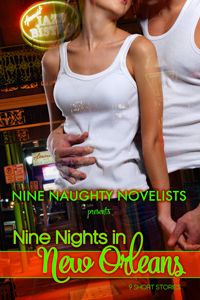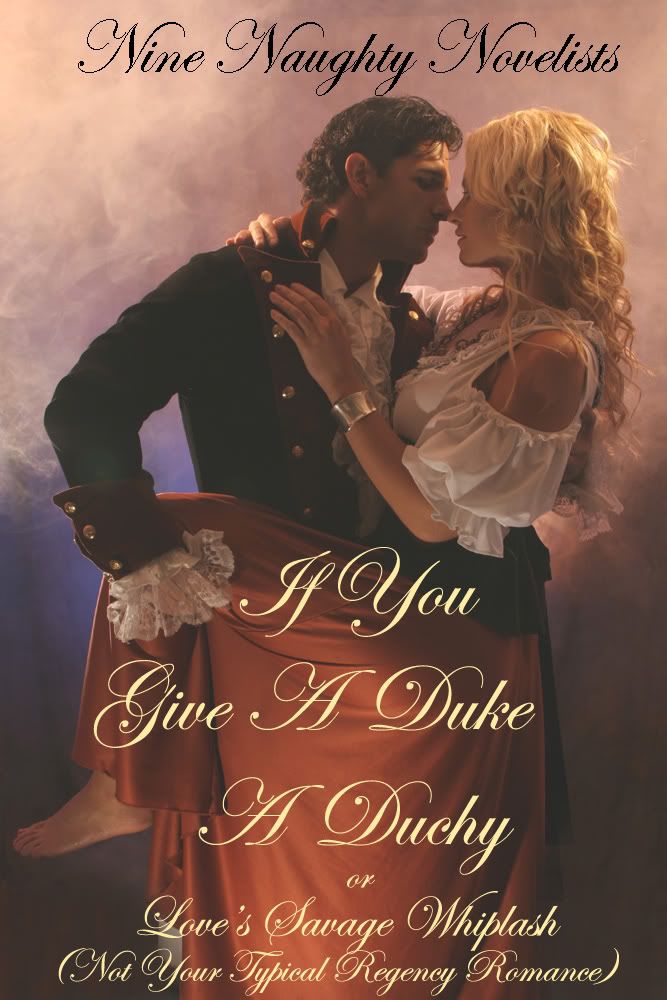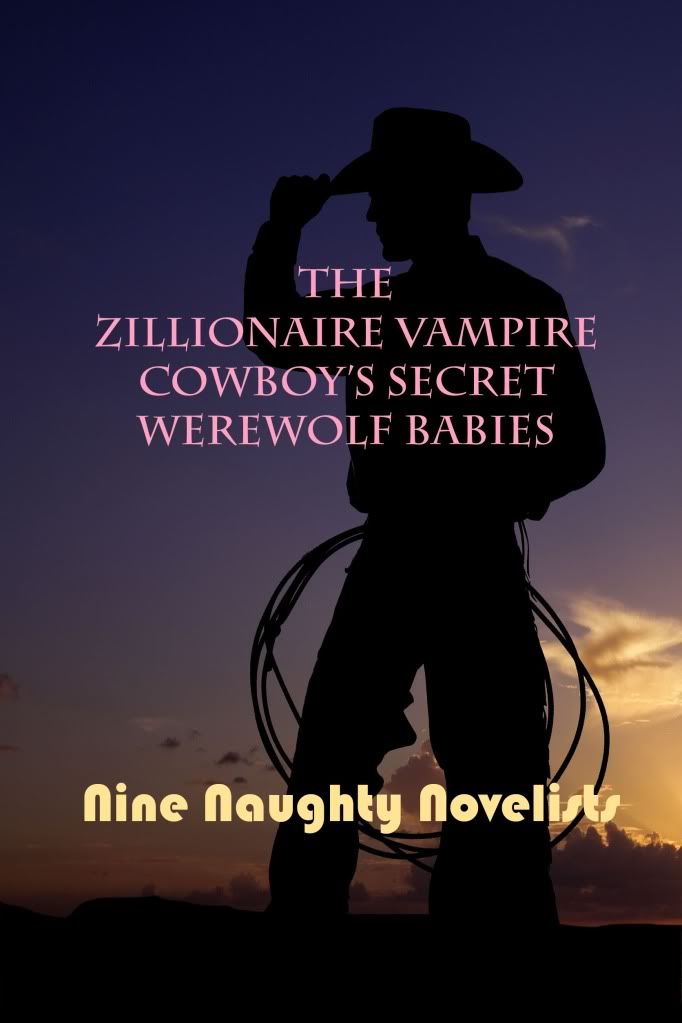A few weeks ago Meg Benjamin wrote a great blog article here “If women like it, it must be stupid”. I’ve been thinking a lot about this lately.
It started with the Jennifer Weiner/Jodi Picoult/Jonathen Franzen story and the fact that “The New York Times really does review more fiction by men than by women. Far more. Over about two years, from June 29, 2008 to August 27, 2010, the Times reviewed 545 works of fiction—338, or 62 percent, were by men. During that period, 101 books got the “one-two punch” of a review in both the daily Times and the Sunday Book Review—72 of them were by men.”
They do point out that this doesn’t take into account how much of all published fiction is written by women versus men, but as we all know, romance is the biggest selling genre and I’m pretty sure women publish more fiction than men. Not only that, when women writers do get reviewed by the NYT, it’s never romance (someone mentioned Nora got reviewed there once).
Picoult and Weiner made several points not just about reviews by the NYT but that in general fiction written by women does not get the same respect as fiction written by men. It also interested me that the article noted “Nick Hornby, Jonathan Tropper, Carl Hiaasen, David Nicholls...all of these guys write what I'd call commercial books, even beach books, books about relationships and romance and families. All of them would be considered chick lit writers if they were girls.”
Then I read another blog article by Katherine Buetner which referenced Janice Radway’s Reading the Romance, a sociological study of romance readers published in 1984. She conducted interviews in a midwestern town with forty-two romance readers, asking them about their reading motives, habits, and rewards. Radway found that the women she studied devoted themselves to nurturing their families, but received insufficient devotion or nurturance in return. In romances the women found not only escape (remember that word) from the difficult and boring routines of their lives but also a hero who supplied “the tenderness and admiring attention that they have learned not to expect. Specifically, she suggests that romance novels teach their readers to create fantasies that will render their unsatisfying marital relationships more satisfying by applying the rules of the hero’s “transformation” to their husbands: he rarely shows me tenderness, but because he does show it occasionally, he must secretly feel it all the time; those moments are the only moments when he allows himself to show it, but knowing that tenderness exists should be enough.”
Holy crap. Okay, that was 1984 but still, it seems to be saying that romance teaches women to create fantasies to escape from real life – from real, unsatisfying life.
First of all – WTF? Is that a fantasy? Do we expect men to show tenderness and affection all the time? Jeebus. I know my husband loves me, pretty sure he loves me a lot – but hell yeah, he doesn’t show his tenderness and affection all that often. Though I do get a kiss goodbye every morning, without fail. I’d say that’s more like teaching reality, rather than teaching a fantasy.
Second, not all readers of romance are married. And the ones who are, aren’t necessarily unsatisfied in their marital relationship. And...well I could go on and on about the flaws in this research but that’s already been covered elsewhere.
And third - what's wrong with escaping from real life for a while?
What I don’t understand is all this fascination with the reasons women have for reading romance. I Googled “why women read romance” and found pages and pages of hits. Then I Googled “why men read science fiction” and found – nothing. I searched “why men read westerns”, and “why men read adventure” and again – nothing. I Googled simply “why men read” – nothing. Perhaps they don’t. If they do, nobody cares to analyze why or what they’re reading. Ha! Then I Googled “why men read fiction” and the second thing that came up was a blog article by Jason Pinter called “Why Men Don’t Read”. It seemed to prove my point, however when I read the article, he’s discussing a publishing bias against men and the difficulty publishing books that men would read, which leads to a dearth of books that would interest men. Hmm. Interesting. Considering most of the books the NYT reviews are written by men.
In fairness I also Googled “why women read mysteries” – again, nothing.
So...the preoccupation with why women read romance seems to be based on the assumption that romance is unworthy and romance readers (primarily women) are intellectually inferior. In the 18th and 19th Centuries, there was a cultural belief that women were intellectually inferior to men and men believed women would be harmed by reading fiction. And here we are in the 21st Century and it seems that things haven’t changed all that much.
Why do women read romance?
There are two main reasons I read anything: to be entertained, or to learn something. In many cases, reading serves both purposes.
I noted the word “escape” above because romance novels are often called “escapist”, with the idea that the reader needs to escape her world by retreating into the world of the novel. Yet literary fiction isn’t described this way, which implies that readers are getting something more out of it than just “an escape.”
But what’s wrong with escaping your real life for a while to immerse yourself in a different world? That’s entertainment. It’s watching a movie or television show or listening to a concert. But the term is pejorative. It implies there is no learning.
I believe there can be much more than just escaping when women read romance. As I say on my blog, “I believe in the power of romance stories to portray strong, loving, romantic, sexual relationships that succeed, and to celebrate strength, courage, honour, and love. I believe love, romance and sex teach us about ourselves, about each other and about relationships, and break down barriers and boundaries.” So I believe that reading romance does serve the purposes of both entertaining and educating.
Furthermore, why does romance get knocked as a form of escapist entertainment? And this applies not just to books, but to movies – ever hear the term chick flick? Readers of mysteries, crime thrillers, watchers of those types of movies don’t earn the same derision as those who read romance or watch chick flicks. Could it be because they’re primarily...women?
I am deeply interested in the study of romance as literature — but I am NOT interested in the question of why women read romance. I don’t even want to hear that question any more. Nobody is asking “What do readers get out of reading Steven King?” or “Who are the people who read Nicholas Sparks and why do they read his books?” so why do they ask it about the books that women write (and read)? We need to explore romance as a fiction genre without cultural stereotypes and biases about who reads it and why.
Wednesday, September 29, 2010
Subscribe to:
Post Comments (Atom)



















11 comments:
AMEN! Almost everything I needed to know about romantic relationships, I learned from romance.
And incidentally, I Googled "Why do men watch TV?" There were 10 hits -- nine of them "Why do men watch TV with their hand down their trousers?" and one "Why do men watch TV instead of talk about what's bothering them? - Why do men get such a kick out of watching mindless action films?" That says it all, don't you think?
Wow, Kelly. Just wow. This is a wonderful, thought-provoking commentary on a really basic topic. There are so many things I want to say, but mainly they're summed up by "Yeah, sister!"
See now, I think people should be asking “Who are the people who read Nicholas Sparks and why do they read his books?” 'Cause I sure as hell can't figure it out!
Seriously though, perhaps the question we should be asking is "Why don't more men read romance?"
Because if this article http://www.parents-choice.org/article.cfm?art_id=210&the_page=reading_list is correct, the kinds of books boys like to read (ie books that help them understand the real world better, books that don't preach or take a long time to get off the ground, books that are frequently described by others as "trash") sounds a lot like romance to me.
Could it be that boys who are taught to disdain books read for pleasure are growing up to be men who, not surprisingly, perpetuate that same narrow-minded ideas?
Thought-provoking post. I have several comments in response. I think society's attitudes toward romance is based on a couple of things: residual sexism in that anything that WOMEN like must be less worthy than something that men like AND the fact that it is an 800-pound gorilla. Romance is a huge, huge industry that can't be ignored.
The New York Times is very elitist in its treatment of literature. Remember when Harry Potter hit the New York Times bestseller list? They created a NEW list for children's literature because they couldn't have a children's book outpacing more serious literature. I don't expect the Times to afford romance the same respect as other genres--it's just not in the organization's makeup to do so.
People who don't read romance tend to lump them all together, when they're not same at all. Romances are like food: it can be a quick bite, an elegant gourmet meal, dessert, stick-to-ribs meat and potatoes, etc. I think all are valid and all have a place in the world.
Incidentally, I think women like romances because they are about relationships and women are generally more relationship-focused than men.
Great post, Kelly! A couple more points: not all women like to read romance. My mother doesn't, my sisters don't, only some of my friends do. I started reading romance very early on (and not married!), and it was always my favorite genre. I wish they'd do a study on why some women don't read romance, because I have a hard time understanding that!
Also, I once broke up with a boyfriend (professor-type) partly because he refused to read any paper other than the NYT, as if it possessed all the truth in the world. That paper has a very specific point of view that, IMO, offers a fairly narrow window on the world. So personally, I don't particularly care what the NYT chooses to review. It has no effect on my life or my choice of reading material. I don't write to impress a bunch of critics. I write to tell stories that I hope readers will enjoy. End of story.
I think there are a lot of stereotypes associated with romance readers and writers. This is unfortunate, because it's a wonderful genre.
Hi Robin! Laughed at your Googles searches - too funny!
Thanks Meg and Juniper, and yes you make another good point that not all women read romance (though they should :-)
PG that's an interesting article - I always encouraged my son to read anything, as long as he was reading.
Thanks for those comments Cara, I agree, and also agree with you and Robin, that it's about relationships - which I find endlessly fascinating.
Hi Debra - yes I think so too!
Hey Kelly, great post. The New York Times list is an aggravation, but you'd think the woman who says she is about empowering women would pick female authors for her book club list. Care to guess how many Oprah picked since 2005?
Zero. http://mjroseblog.typepad.com/buzz_balls_hype/2010/09/the-.html
That really burns.
Excellent post, Kelly. I'd read Meg Benjamin's post, and it stuck with me as well. It had all my feminist conspiracy theories rising to the fore. :)
Theories about why traditionally women dominated jobs, such as teaching, continue to be underpaid and devalued. (being a former teacher of ten years, believe me teachers are definitely devalued and many times verbally degraded for causing all the problems in the country)
I came to the romance genre only a few years ago. And I've found yet again, that another profession, primarily populated by women, is devalued and degraded on a regular basis. (Lots of times by people who've never even read one.)
I believe an unbiased sociological study would shed much light onto the merits of romance books for its target audience. And as you say, not just escapism.
This was a very thought provoking post - as well as timely, coming on the heels of one of romance's biggest authors renouncing the genre. Danielle Steel. http://www.guardian.co.uk/books/2010/sep/23/danielle-steel-romance-fiction-novels
Oh Nara, I can't believe that! Oprah!
And thanks for commenting Ava - yes, if you consider writing romance a "female dominated profession" that makes sense doesn't it. Sigh.
Post a Comment